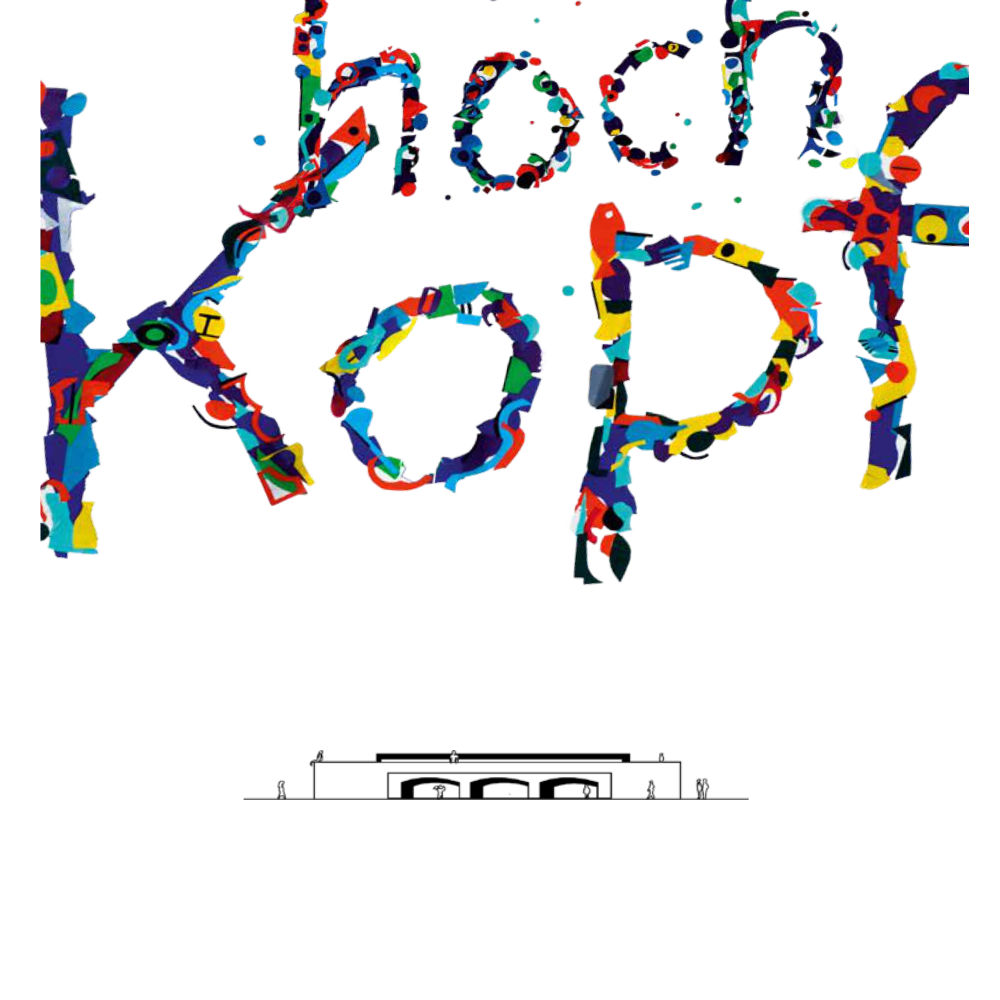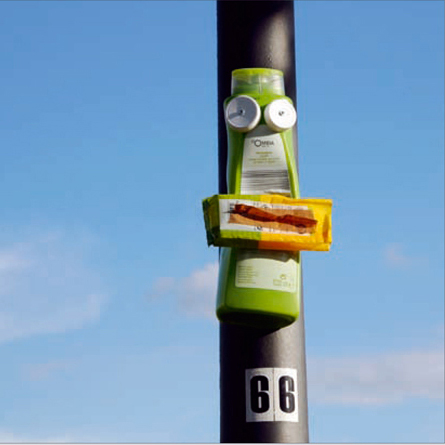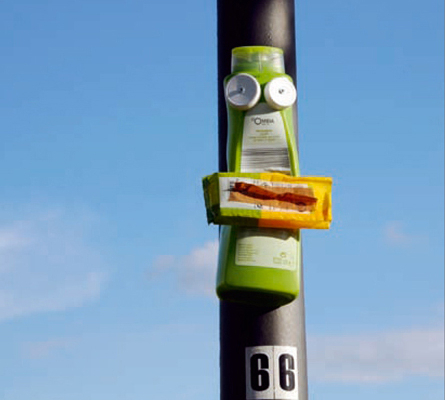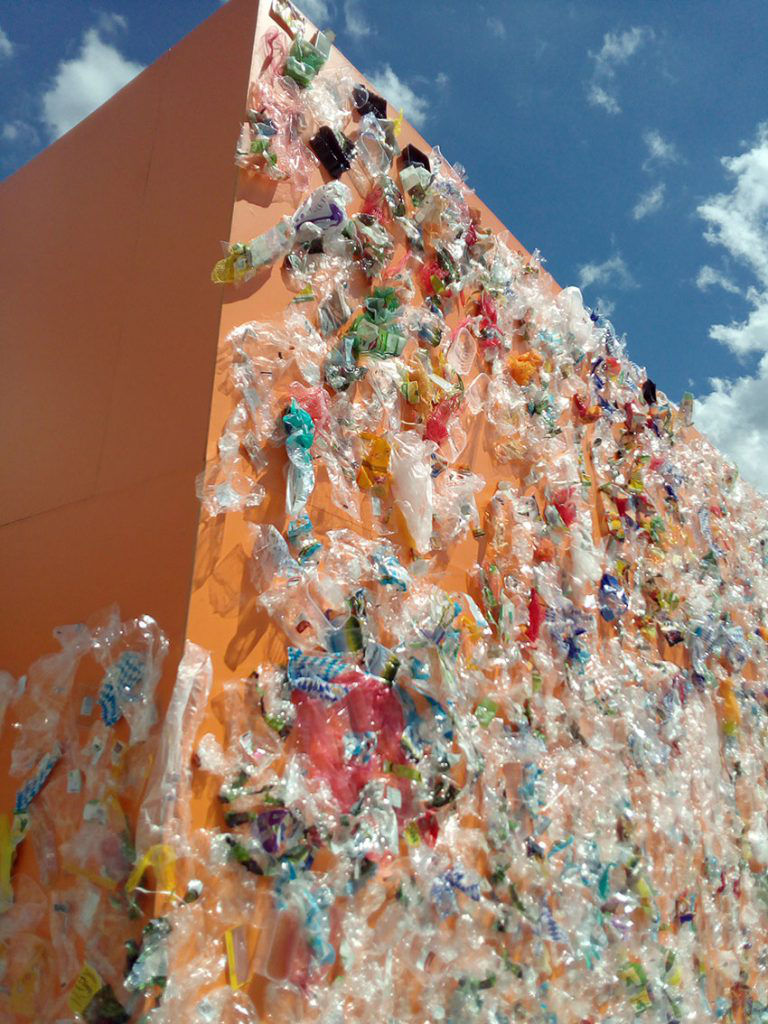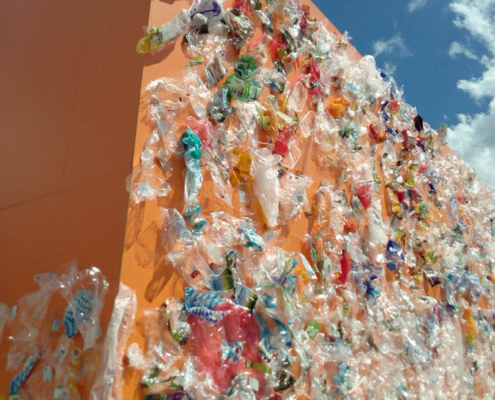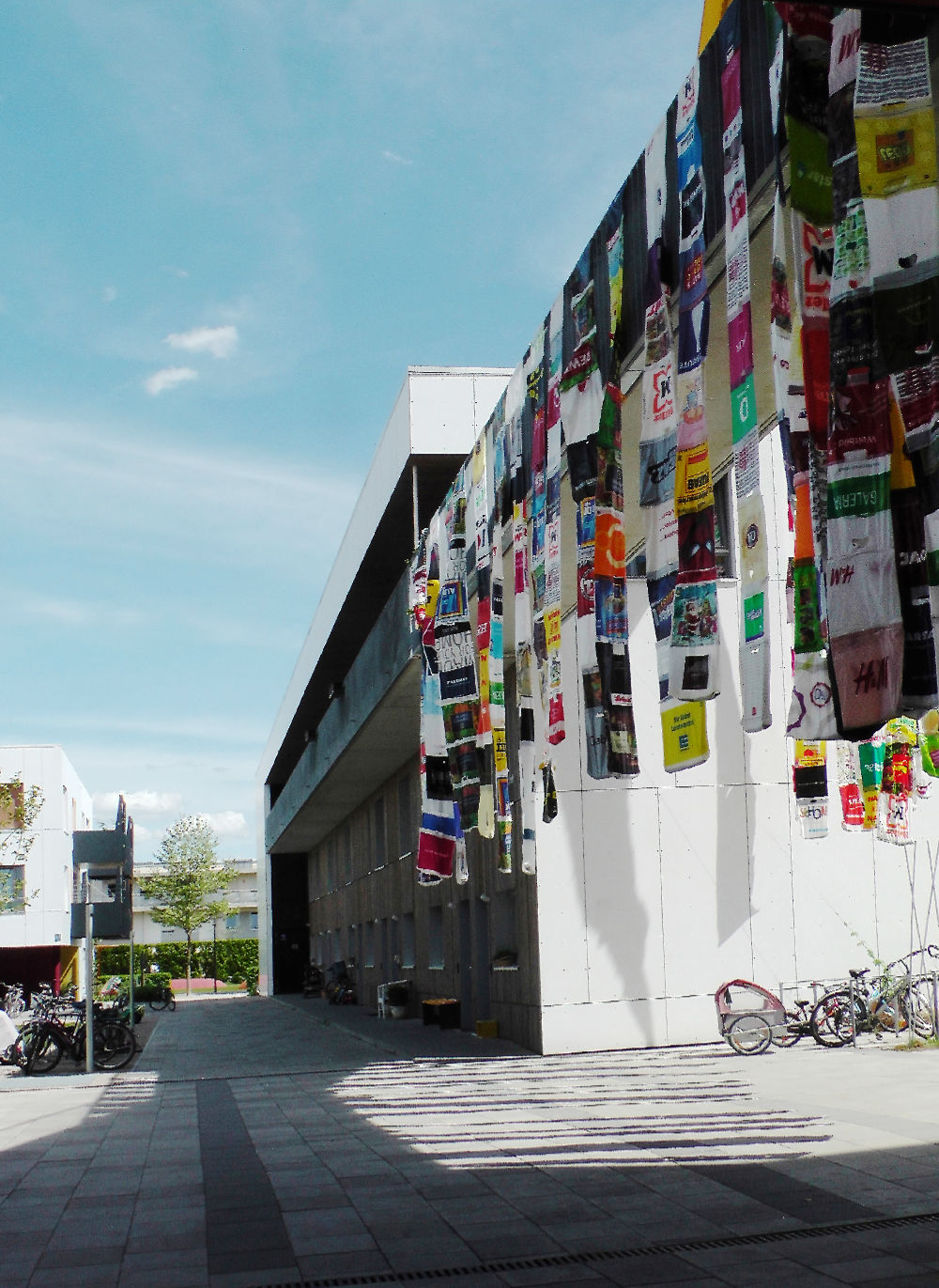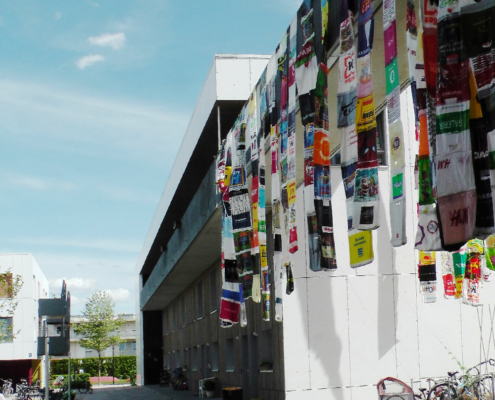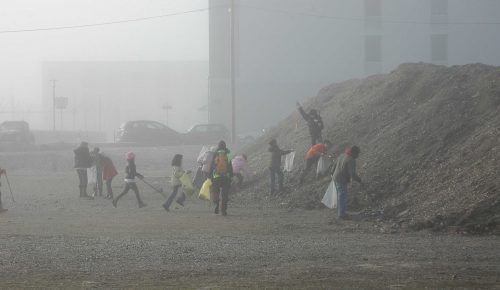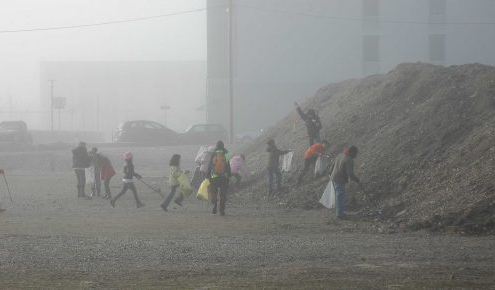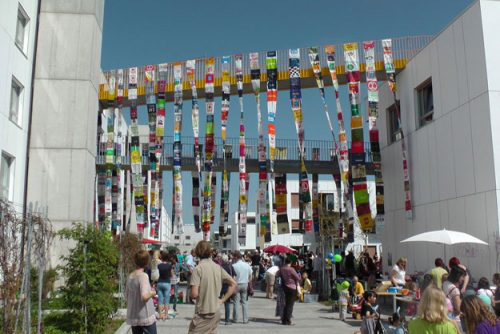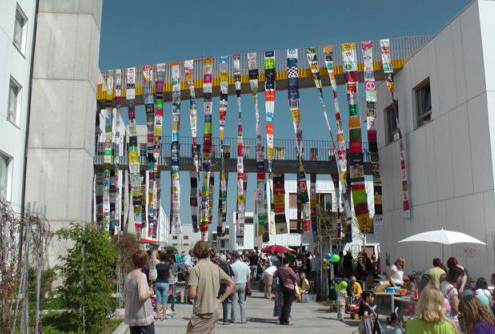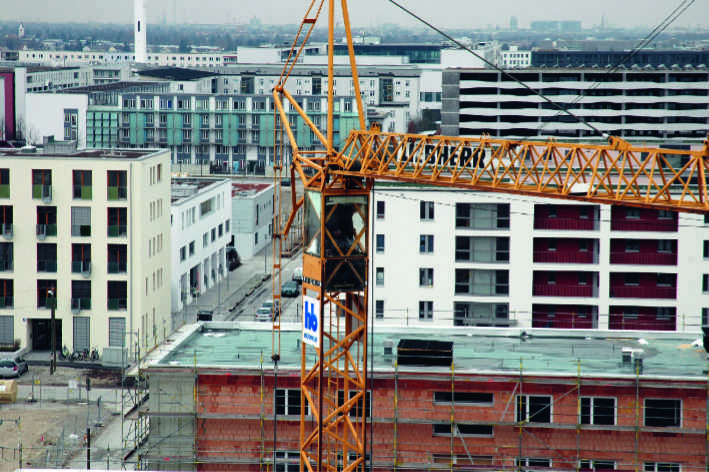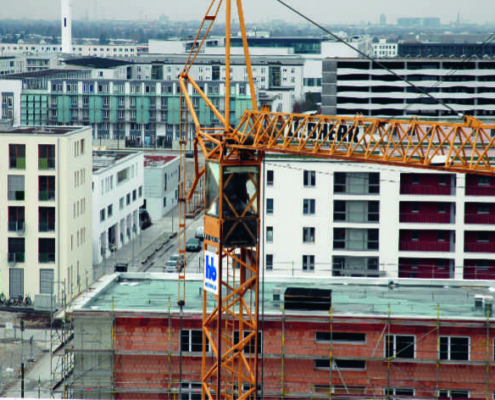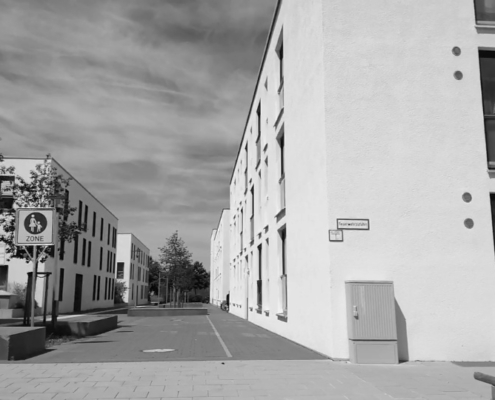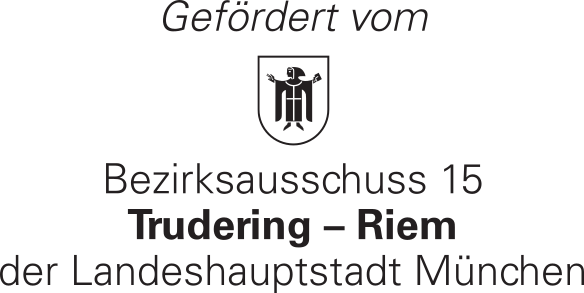Download of the documentation to the art project „Kopf hoch 2020“ („Cheer up!“)
For more information to the full project see project website KopfbauT (in German)
Before
Everything starts small at some point
The projects at Kopfbau have their origins in small cultural precursor projects in the district. In 2009, the artist Michael Lapper realised the art project „Wir, der Müll und die Stadt“ (We, the rubbish and the city) together with school classes from primary schools in the district, which dealt with plastic waste and lifestyle. In the process, the adjacent municipal park became a public gallery and the exhibition found a large audience. In the second part of the project „Tüte dazu?“ (Want a plastic bag?) he created a Spanish curtain made of 500 plastic bags with the residents of a cooperative and installed it between the houses. In this way, the topics „packaging“ and „consumption“ visibly reached the consumers via the district architecture. The project won the Munich School Award for Urban Development in 2010. Later, it developed into a comprehensive school art project about plastic waste, climate change and other fierce current and future challenges. This was then to be shown as an exhibition and installation in the Bavarian Parliament in 2020, more or less as a lobby for future generations from below. Two days before the opening, the exhibition was cancelled at short notice due to Corona. But the topic will continue to occupy us in the future.
The exploited and the living city
Is Messestadt-Riem a dormitory town?
With 20,000 people from 150 nations, a living multiculturalism?
A block settlement with a park as a big garden for everyone?
Or everything together?
And what can you do here yourself?
Messestadt-Riem is a Munich development like many others, and at the same time somewhat different. Ambitiously planned, with a spacious park and good infrastructure, the district can be looked upon as a „model city“. Apart from a few exceptions, however, it is dominated by uniform block development with long, monotonous street axes – typical of many new development areas of our time. What is missing here is something distinctive, personal, surprising or changeable. This is an example of how little room there is for manoeuvre in cities that are under high pressure of exploitation, and how urban complexity often falls by the wayside and is then mostly oriented towards the standard of care-friendliness of property managers, including soil sealing. The comprehensive economic exploitation of cities leaves little room for lively civic participation and co-determination.
